8 studious examples who became prominent celebrities in the North Central region
(Baonghean.vn) - The North Central region is a land that has produced many talented people for the country. Here, the spirit of learning has truly become a typical and unique cultural value.
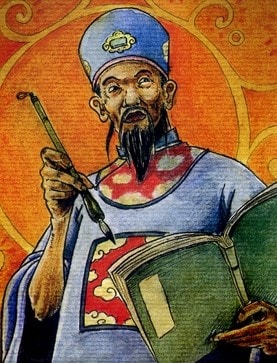 |
Le Van Huu (1230-1322):
A famous scholar and historian during the reign of Tran Thai Tong, he was from Phu Ly commune, Dong Son district, Thanh Hoa province (now Phu Ly Trung village, Thieu Trung commune, Thieu Hoa district, Thanh Hoa province). When Le Van Huu was still in his mother's womb, his father died. He lived with his mother and maternal grandfather, Do Tat Binh - a Confucian scholar well-versed in geomancy, feng shui, etc.
From a young age, taught by his grandfather, Le Van Huu showed himself to be more intelligent and studious than others. In addition to studying with his grandfather, Le Van Huu also studied with a scholar named Nguyen in Phuc Trien village, Ke Bon (now Thieu Hoa district, Thanh Hoa province).
In the year of Dinh Mui 1247, he passed the Bang Nhan exam, at the age of 17 he became a judge, held the position of criminal justice, then became the Minister of War, with the title of Nhan Uyen Hau. In addition, he was also the teacher of General Tran Quang Khai... He liked to travel, to observe the shape of mountains and rivers, and was interested in studying Geography.
During the reign of Emperor Thanh Tong, he held the position of Academician of the Academy, concurrently as National History Monastery, and was ordered to compile the Dai Viet Su Ky. The book was completed in the year Nham Thin 1272, consisting of 30 volumes, recording from the reign of Trieu Vo De to the reign of Ly Chieu Hoang. This history book was praised by King Tran Thanh Tong.
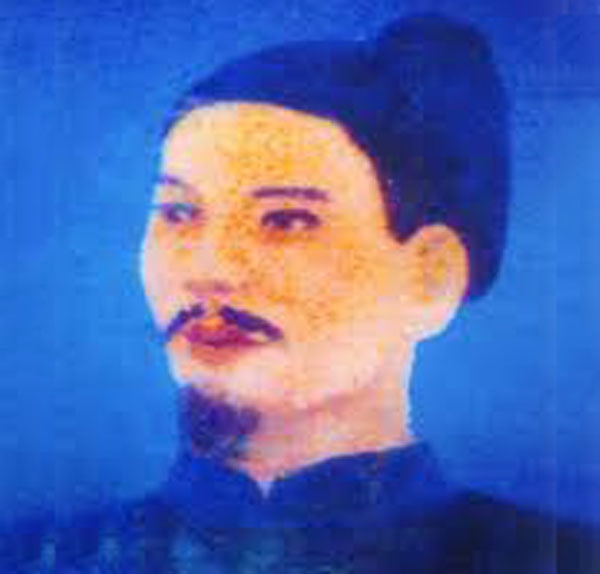 |
Dao Duy Tu (1572-1634):People of Hoa Trai village, Ngoc Son district, Tinh Gia prefecture (now Tinh Gia district, Thanh Hoa province).
Dao Duy Tu himself was intelligent, since childhood, the "heroic cowherd" was passionate about books, had a wide knowledge but due to his low family background ((He worked as a singer and dancer) so he was not allowed to take the bachelor's exam even though he had changed his last name (from Dao to Vu).
Later, he was determined to go to Dang Trong to establish a career with Lord Nguyen Phuc Thuan. Dao Duy Tu was promoted to hold many important positions such as Tan Tri Duc Cong Than, Loc Khue Hau, Hoang Quoc Cong. He was the author of Luy Truong Duc and Luy Thay, two important defense lines for Lord Nguyen to prevent the attack of Lord Trinh (Dang Ngoai), the author of many collections of Luc Bat poems and the founder of the art of Vietnamese Tuong singing.
National history books have praised him as a man of great ambition, overcoming hardships and difficulties, a shining example of self-reliance, career building and studiousness.
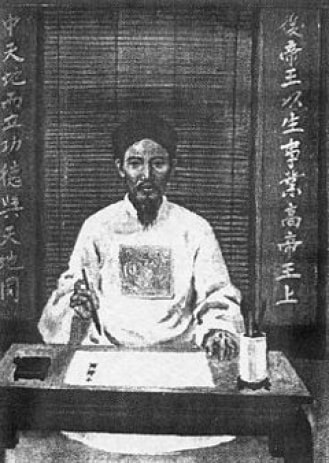 |
Le Quat (1319-1386):
His given name was Ba Quat, his pen name was Phong Mai, he was from Dong Son district, Thanh Hoa province (the same hometown as Le Van Huu). According to legend, he was a descendant of Grand Tutor Le Van Thinh, the founder of the imperial examination system in our country.
The book "The Mirror of Learning Past and Present" tells that his family was very poor, without fields or buffaloes. The mother and son had to work as street sweepers in the market to make a living. Despite the family's poverty, the mother was determined to send her son to school. Le Quat studied very well, reciting everything he read. Admiring the boy's love of learning, the neighbors were also willing to help the mother and son.
One day, Le Quat asked a retired mandarin for water. Hearing that he was a student, the mandarin asked him about the classics to test his ability. Quat answered very fluently. From then on, this person provided money for the poor young man to study.
Le Quat overcame difficult circumstances, became an excellent student of teacher Chu Van An, passed the imperial examinations, and contributed to the world. Under King Tran Minh Tong, he passed the imperial examinations (doctorate), became an official, and gradually rose to the position of Minister of the Interior (second-ranking official in the court).
People often call him "Trang Sweep" to praise the rare will to study of the poor boy who used to work as a street sweeper.
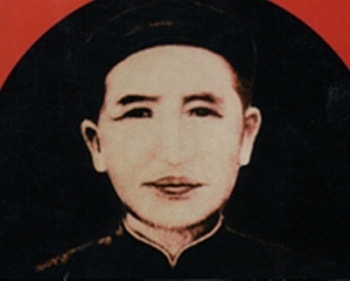 |
Nguyen Truong To (1830-1871):
There have been many studies about him and it is confirmed that he was a person with a mind beyond his time, and at the same time a patriotic Catholic. The reason for this is because there are things he wrote 150 years ago that are still relevant today, such as fighting corruption, smuggling, opening up to foreign investment, and reforming education...
Nguyen Truong To was intelligent and a good student, but he did not pursue a career in the government. During his childhood, he studied Chinese characters with his father, Nguyen Quoc Thu, a man of letters and a famous traditional Chinese medicine practitioner. After his father passed away, he studied with local teachers such as Tu Giai, Cong Sinh named Huu, and District Chief Dia Linh. During those years, he was famous as a "child prodigy".
At the age of 27, he was invited by Bishop Gauthier (Ngo Gia Hau) to Tan Ap seminary, in Xa Doai parish, to teach Chinese to the bishop and was taught French and European scientific knowledge by the bishop.
At the age of 30 (1858), seeing that Nguyen Truong To was a determined and intelligent young man, Bishop Gauthier sent him to Hong Kong, Singapore, Switzerland, Rome (Italy) and finally to Paris (France) to study for nearly 2 years. In just this short time, the young man from Nghe An, Vietnam, diligently studied and absorbed modern scientific knowledge, learned about the reality of Western society, in order to help his homeland in the future.
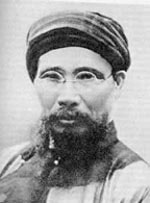 |
Phan Boi Chau (1867-1940):
His name is Phan Van San, also known as Hai Thu, later taking the name Sao Nam, he was born in 1867 in Dan Nhiem village, Xuan Hoa commune, Nam Dan district (Nghe An). Born into a family of Confucian scholars, Phan Van San was famous throughout the region for his intelligence as a child. With his innate talent but born in a country of hard work, war, and poverty, Phan Van San chose to teach to make a living.
He also pursued the path of imperial examinations but seemed to have realized the backwardness and obsolescence of the education system at that time. In 1898, after being wrongly accused of “hoai phi van tu” (illegible text) for bringing documents into the examination hall and being sentenced to “Chung mau bat dac ung thi” (unable to take the exam for life), Phan Van San packed his bags and went to Hue.
In the capital, he had the opportunity to meet and make friends with famous scholars and high-ranking officials who held important positions in the capital. Phan's talent quickly became known to many people in Hue and he became close friends with like-minded people such as Phan Chu Trinh, Nguyen Thuong Hien, Dang Nguyen Can, Huynh Thuc Khang, Tran Quy Cap... Also in the capital Hue, with the help of friends, Phan Van San's "hoai chieu van tu" injustice was resolved.
In 1900, he returned to his hometown Nghe An and took part in the regional examination. In this examination, he passed the exam with the praise of "A name famous in the literary world" and from here, Phan Van San "had a false reputation to cover the eyes of the world" - as he said. This was also the time when he entered a life of patriotic activities full of excitement and storms under the name Phan Boi Chau.
Throughout his life, he traveled around the world to find a way to gain independence for his nation, and as early as 1925, he accurately assessed Nguyen Ai Quoc's role in the later Vietnamese revolution.
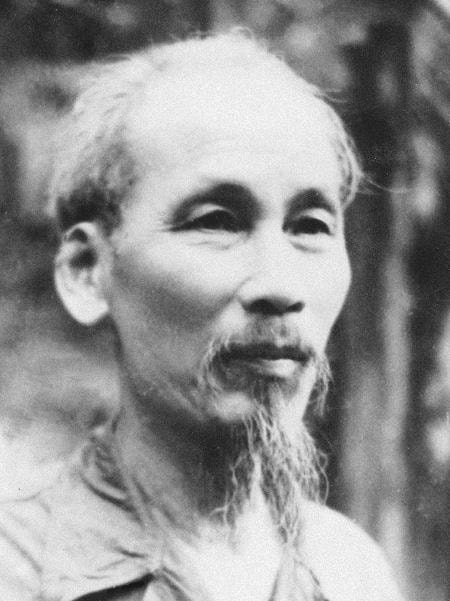 |
Ho Chi Minh (1890-1969):People of Kim Lien village, Nam Dan, Nghe An. Self-study and lifelong learning are important points in Ho Chi Minh's ideology on education. Through his example of lifelong learning, Uncle Ho left behind many valuable lessons and instructions, including very basic contents that we need to learn and follow.
President Ho Chi Minh's self-study model was formed throughout his life of revolutionary activities, reflecting his intelligence, courage and personality. For him, studying at school was not so much about studying but self-studying was the main thing.
According to Uncle Ho, self-study is a purposeful human activity, necessary and very important in the process of acquiring knowledge. During the years of wandering abroad, when he was a waiter on a ship, sometimes he was a furnace worker, sweeping snow in the freezing winter in England, sometimes he was a newspaper seller, a photographer, painting antiques in France... Uncle Ho always took advantage of the opportunity to self-study.
Whatever words he needed to learn, he would write on his arm, looking at them as he walked, working as he studied, and by the end of the day, the words would fade away and he would remember them all. Although his work was hard and lasted all day, he still took the time to go to the library to read books or listen to talks to enrich his knowledge. In the evening, he attended rallies and met political, cultural, and artistic activists to improve his understanding. It can be said that his hard working life had forged in him the determination to persistently study on his own.
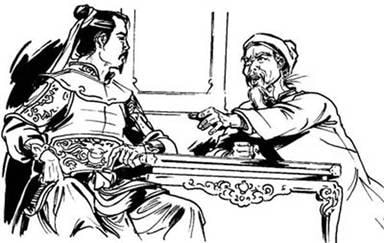 |
La Son Phu Tu Nguyen Thiep (1723 - 1804):
NFamous teacher of Hong Lam. In the history of ancient and medieval Chinese education in our country, there were two teachers who were revered as Phu Tu by their students, including La Son Phu Tu Nguyen Thiep (18th century - early 19th century), from Hong Lam (Nghe Tinh). Phu Tu's passion for researching philosophy and applying it to real life, predicting the times and future made people admire him; he was an exemplary teacher, devoted to training talented students to serve the dynasty and the country.
Nguyen Thiep (1723-1804), whose given name was Khai Xuyen, and his pen name was Lap Phong Cu Si, was from Mat Thon village, Nguyet Ao commune, La Son district (now Duc Tho district), Ha Tinh province. He was honored by his contemporaries as La Son Phu Tu. Phu Tu was an ancient title given to someone considered a master of the world. Nguyen Thiep was "bright in nature, learned widely and understood deeply" and passed the exams early: at the age of twenty he passed the Huong Giai (first place in the Huong exam), at the age of twenty-six he passed the Tam Truong exam (passed three out of four exams of the Hoi exam).
He worked as a teacher (an official in charge of education in the prefecture and district) and then as a district magistrate, all within ten years, after which he retired. He was a harsh critic of the practice of studying by rote for fame and profit, calling for the revival of "official learning" to train talented and virtuous people, using their knowledge to benefit the world. Later, Nguyen Thiep was invited by King Quang Trung to help the royal court.
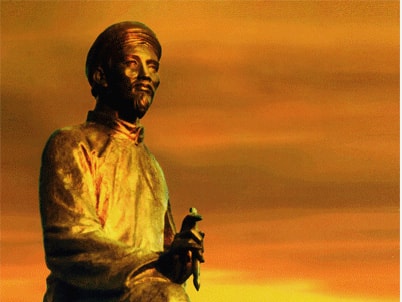 |
Nguyen Du (1766-1820):
He was born in a village famous for the Nguyen family, Tien Dien village, in Nghi Xuan, Ha Tinh. He is considered the greatest poet of Vietnam ever, the Vietnamese respectfully call him "Great national poet". In 1965, he was honored by UNESCO as a world cultural celebrity. Nguyen Du, along with Nguyen Trai and President Ho Chi Minh, is one of the three world cultural celebrities of Vietnam up to this point.
At the age of 17, he passed the bachelor's exam. 36 years later, he was appointed as Phu Dung District Governor, then Thuong Tin District Governor. He was trusted by the king and sent many times as an envoy to China, and promoted to hold many important positions such as Dong Cac Scholar, Quang Binh Province Governor, Can Chanh Dien Scholar, and Minister of Rites.
Pear Flower
(Synthetic)
| RELATED NEWS |
|---|

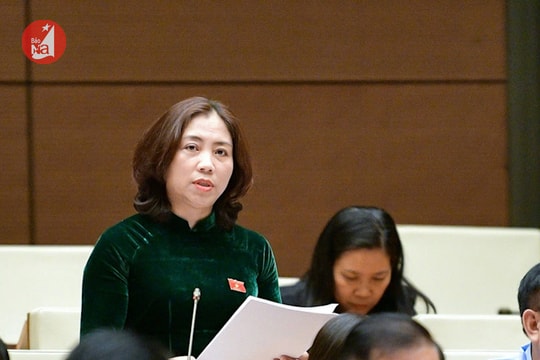
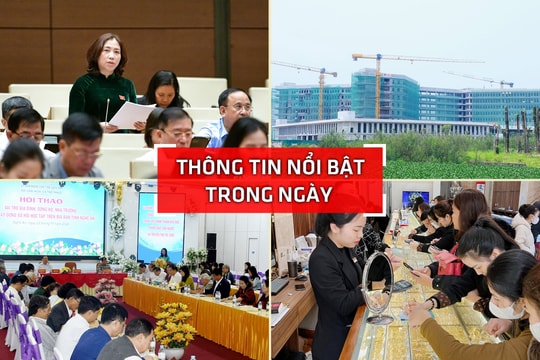
.png)
.png)
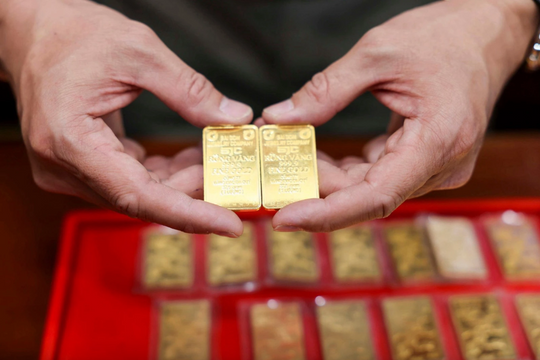
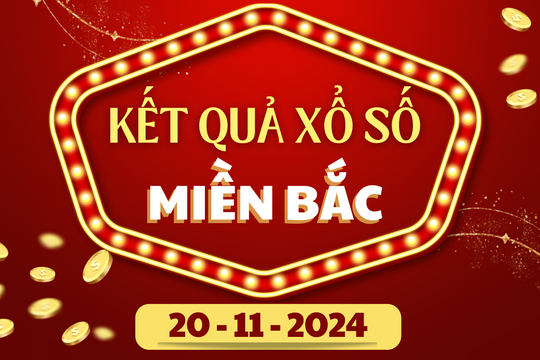
.png)
